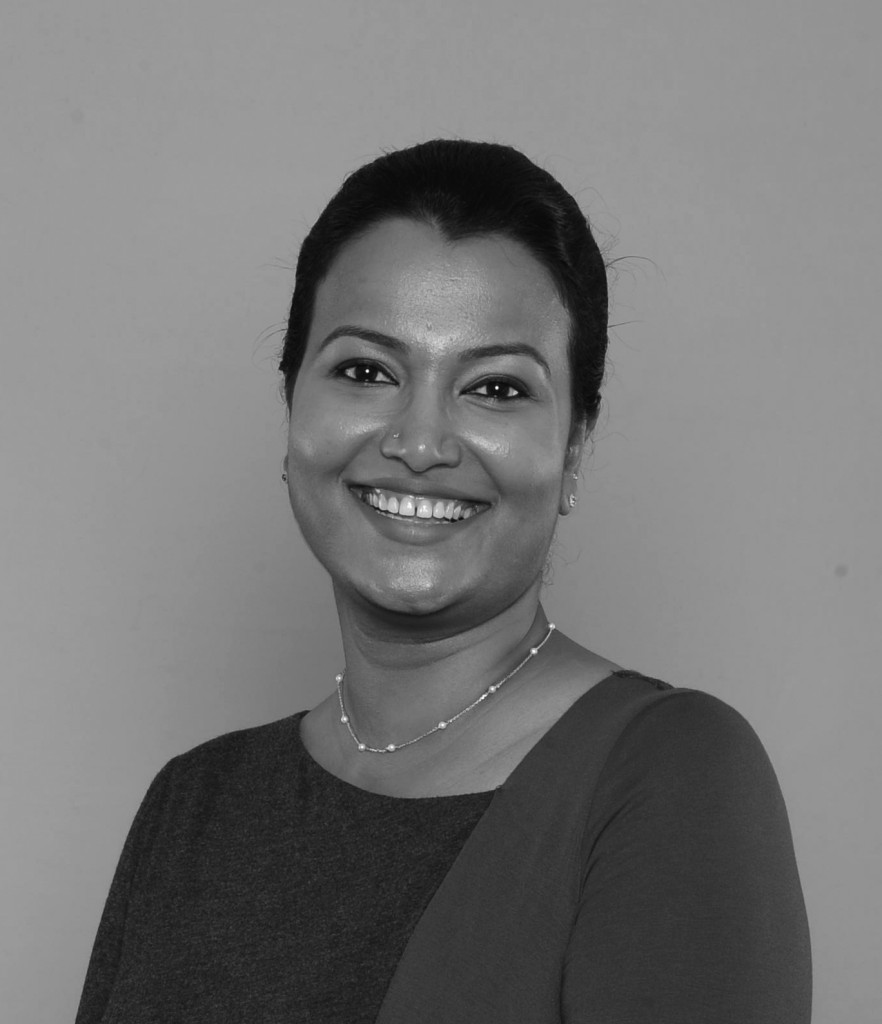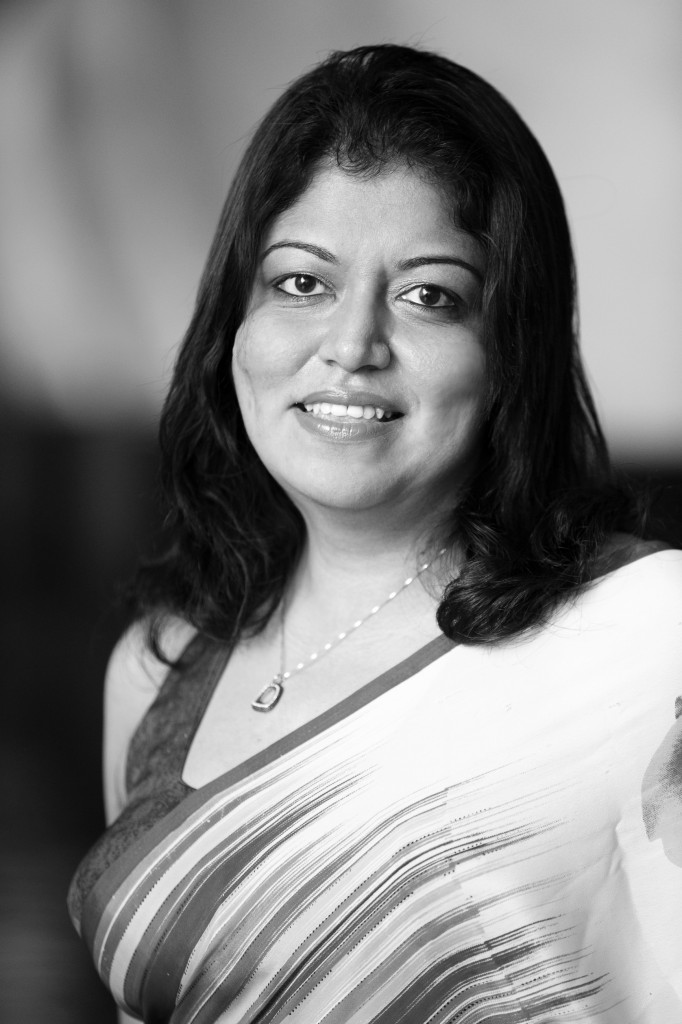

50 Most Powerful Women - Multinationals
#30 CHANDI DHARMARATNE DIRECTOR OF HUMAN RESOURCES, Virtusa Of Virtusa’s team in Colombo, over 85% are so called millennials, or those born after 1980 or so. Virtusa’s head of human resources Chandi Dharmaratne has the unique challenge of having to attract, develop, engage and inspire them. Why are millennials important for a company like […]
#30 CHANDI DHARMARATNE
DIRECTOR OF HUMAN RESOURCES, Virtusa
Of Virtusa’s team in Colombo, over 85% are so called millennials, or those born after 1980 or so. Virtusa’s head of human resources Chandi Dharmaratne has the unique challenge of having to attract, develop, engage and inspire them.
Why are millennials important for a company like Virtusa to attract. Are they different to generation X or baby boomers?
I don’t think millennials are 100% different to generation X or baby boomers. While some traits are similar, you will notice some key characteristics in the millennials because of their exposure to certain things such as social media. For example, millennials have helicopter parents, who chaperone their every move, andthey are a generation that has always received a pat on the back even for merely participating. So they expect this experience in the corporate world as well. However, it’s important to harness these traits that millennials bring into the corporate sector. Generation X and baby boomers are also important because they have 20-30 years of experience;it’s critical to transfer this knowledge to millennials. The focus is on millennials because statistics show that, by 2025, 75% or 3 out of 4 in the global workforce will be a millennial. From a consumer perspective, the highest income/spending power is going to come from millennials in 2018. So if you are not geared towards attracting millennials to your service or product, you have already lost the game.
What are some of the challenges you face in meeting your targets?
The challenges have been to understand millennials and have the proper methods to maximize their performance, maintain a dynamic business environment, and grow at least 75% of the leadership pipeline internally. From an HR perspective, we need to gear ourselves to understand how best to improve processes and contribute to developing people. HR at Virtusa is fully integrated with the business. My metrics and indicators are clear, so I need to continuously improve how I can service my employees.
What are some of the processes you have put in to place?
The systems currently in place at Virtusa such as Yammer (a social collaboration platform), Wingo (a site akin to Google that houses all digital information within the organization) and MySite (the employees’ 360° profiles) have made collaboration easy.It has always been important to maintain a good, united team– everything else is value creation. I believe Virtusa has the best HR team in Sri Lanka right now. We also need to look into attracting the right people locally and internationally. For this, Virtusa has partnered with local universities and institutions to conduct tech talks and workshops. I also pioneered the tripartite global leadership programme called the International Summer Programme together with the American Chamber of Commerce, Citibank and Unilever to reach Sri Lankan IT graduates overseas.
What do you think will challenge Virtusa in the future?
Our industry is such that my to-do list will never be complete. What is in the pipeline now is our business as usual (BAU) items–the international summer programme, the campus reach programme, internships and the global leadership programme. However, as the largest organisation in Sri Lanka, I am sure we’ll have new things to work on over time – new challenges and new requirements. The industry is going towards $1 billion in 2015, so we need to see how Virtusa can contribute to this from a local perspective.
#40 TANIA POLONNOWITA WETTIMUNY
MANAGING DIRECTOR, Hellmann Worldwide Logistics Sri Lanka
The Sri Lankan government’s vision of the country as a regional logistics hub and construction of infrastructure has been a boon to companies like Hellmann, which are trying to grow rapidly in Sri Lanka’s logistics space.
Tania Polonnowita Wettimuny, the Managing Director of the Germany-headquartered logistics firm, is enthusiastic about the increased capacity and believes it is now up to the private sector to fill it. “In any country going from being undeveloped to developed, building infrastructure with proper planning and projection is key to attracting business,” she says.
“Once the infrastructure is in place, the private sector is responsible for making maximum benefit of the facility and bringing in investment.”Hellmann is a 143-year-old family-owned company working in 157 countries, and its services include road, air and sea freight, contract logistics, customs brokerage, warehousing and ecommerce. The company’s Colombo office was established in 2007 after it had been present in Sri Lanka for several years through an agent. Tania, who was a director at the agent’s offices, was invited to be Managing Director, reporting directly to its headquarters.
The company has five offices and 137 staff in Sri Lanka. Its most recent venture in the country has been diversification into contract logistics. With little growth in traditional freight forwarding, contract logistics presented an opportunity for expansion. The company did not see results initially, but today it is reaping the benefits and is venturing into more areas of contract logistics.
The company grew 54% last year. With over 500 freight forwarders serving a 21 million population, competition in Sri Lanka is tough. Hellmann is still a new entrant and has bigger competitors who have been in the market for over forty years, but Tanya see this as an opportunity for Hellmann to constantly improve its business.
#41 SANJEEWANI RANASINGHE DE SILVA
HEAD OF CORPORATE AFFAIRS & BRAND & MARKETING, Standard Chartered Bank Sri Lanka
Sri Lanka’s regional financial hub ambitions have got Standard Chartered Bank’s local unit’s attention resulting in its increased engagement with the country. Standard Chartered Bank (SCB) has partnered the government in sharing best practices and experience from other development success stories such as Singapore and Malaysia, conducting trade shows, and knowledge transfers with senior officials.
“All of a sudden Sri Lanka is on the map for SCB, and not just because of the profits we earn, but its promise for the future,” says Head of Corporate Affairs, Brands and Marketing at Standard Chartered Bank Sri Lanka, Sanjeewani Ranasinghe De Silva.
SCB is also the financial partner for some of the largest private investments in the country including ones by the Shangri La hotel group, an international bond issue with SriLankan Airlines, and the development of the Hambantota port. SCB is also the sole financer, thus far, for John Keells Holding’s Waterfront project.
She adds that SCB is capitalising on the end of the war and the Sri Lankan economic rebound with several projects in the pipeline. Headquartered in the UK, Standard Chartered Bank (SCB) has a presence in over 68 markets, with a focus mainly on Asia, the Middle East and Africa.
#49 NILUSHA RANASINGHE
HEAD, ACCA Sri Lanka & Maldives
Growing its student and member base has been one of Ranasinghe’s key focuses since taking over the position as head of the Sri Lankan office of the British accounting body ACCA. The Sri Lankan region recorded is now recording double-digit growth for the first time.
For Ranasinghe, building strong partnerships and networks with multiple stakeholders including employers, regulators, professional bodies and ACCA tuition providers has helped grow market share and strengthen brand presence. Her second challenge was to change the perception of the ACCA as a work ready qualification for graduates.
Ranasinghe is passionate about providing opportunities through education and people development. An Attorney at Law by profession Nilusha Ranasinghe was Head of Legal at NDB before she moved in to the education sector. Ranasinghe currently heads ACCA Sri Lanka and Maldives and is responsible for the development and execution of ACCA’s corporate strategy in Sri Lanka.





